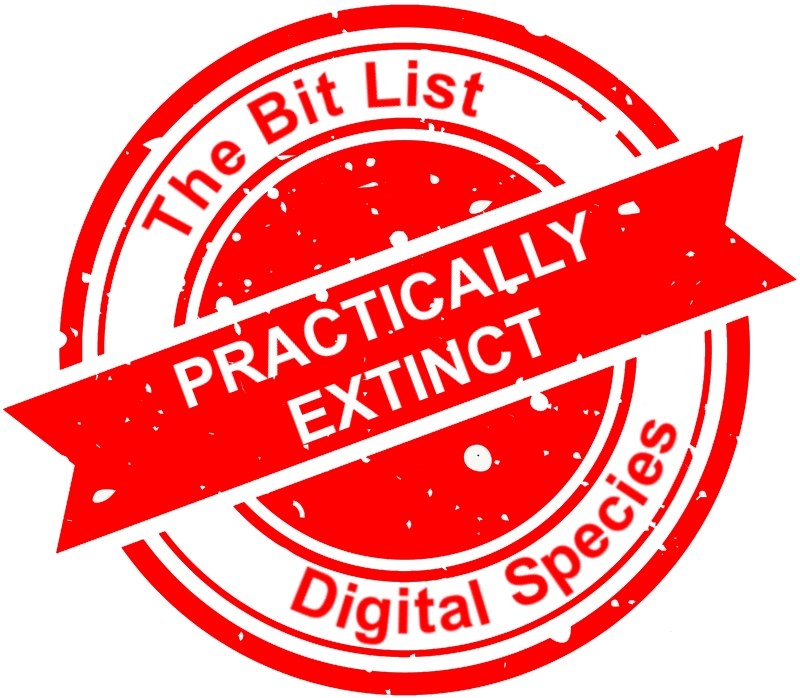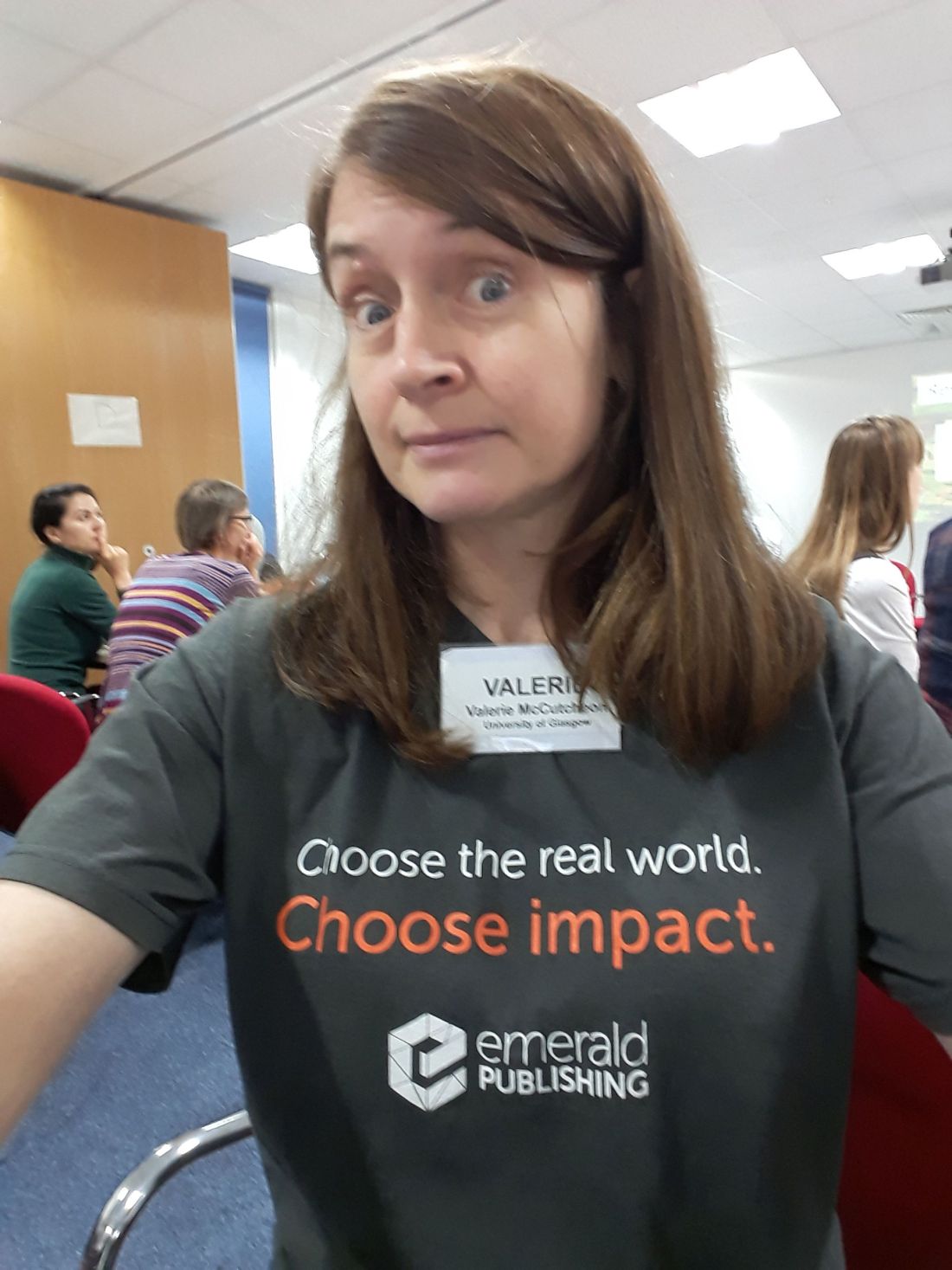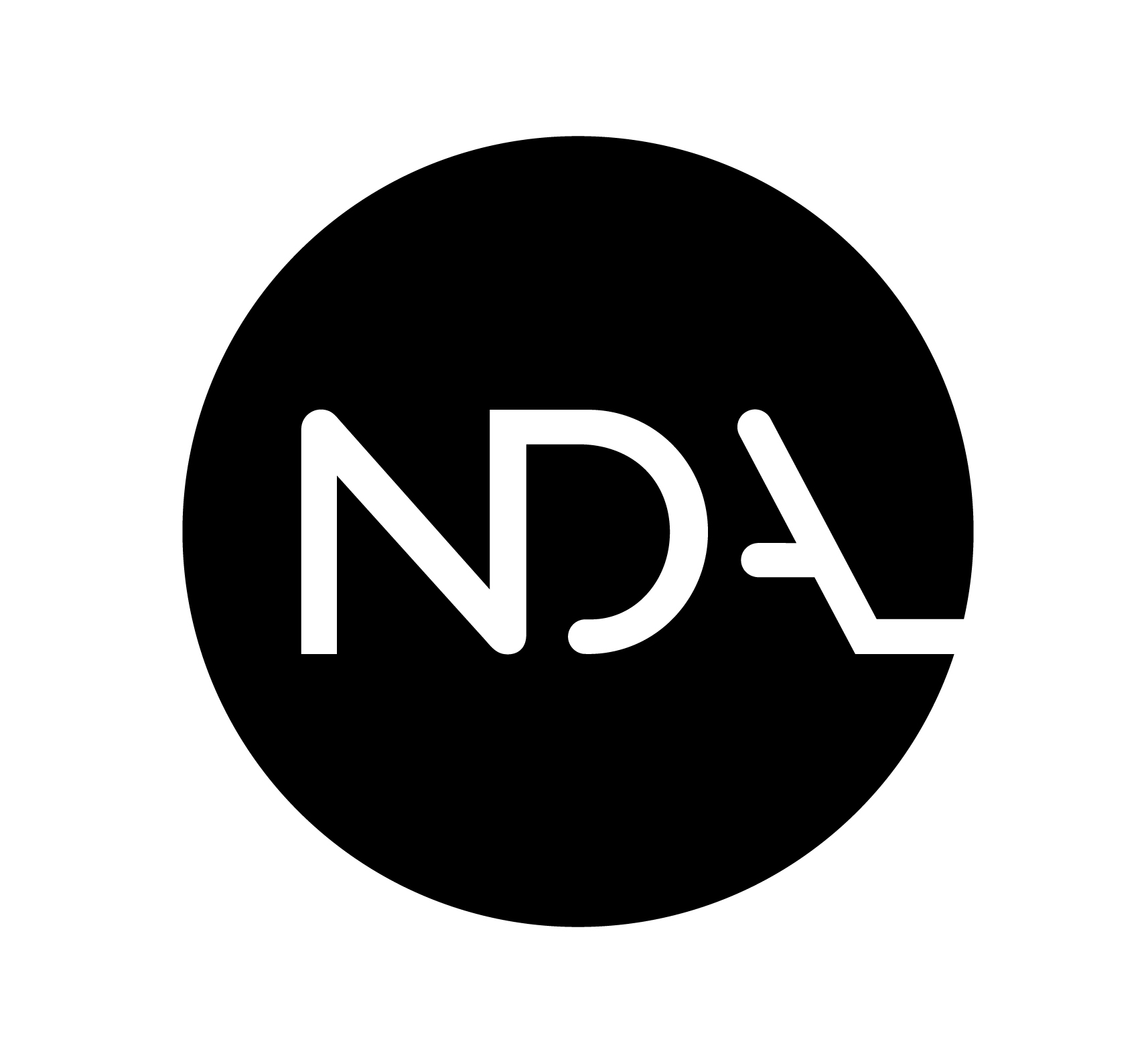DPC
Pre-WWW Videotex Data Services and Bulletin Board Services
Pre-WWW Videotex Data Services and Bulletin Board Services
 |
||
|
Pre WWW telephone and television information services that allowed a degree of user interaction and data retrieval with modem-based two-way communication. |
||
|
Digital Species: Sound and Vision |
Trend in 2022:
|
Consensus Decision |
|
Added to List: 2017 |
Trend in 2023:
|
Previously: Practically Extinct |
|
Imminence of Action Immediate action necessary. Where detected should be stabilized and reported as a matter of urgency. |
Significance of Loss The loss of tools, data or services within this group would impact on some people and sectors. |
Effort to Preserve | Inevitability Loss seems inevitable: loss has already occurred or is expected to occur before tools or techniques develop. |
|
Examples Prestel, Minitel, VidiTel and Videotex NL, Alex, BelTel, FidoNet |
||
|
‘Critically Endangered’ in the Presence of Good Practice Offline backup documented and available for recovery. |
||
|
2023 Review This entry was added in 2017, and there has been no evidence to document any change in the initial classification that such data is Practically Extinct. There may be examples residing in offline backups of services taken at the time, but these are likely to have deteriorated rapidly. Therefore, the Jury calls on anyone with such collections to act quickly to stabilize and recover content. The 2021 Jury agreed with the current classification and description with no change to trend. The 2022 Taskforce noted no change to the trend (they agreed these risks remain on the same basis as before). The 2023 Council agreed with the classification of Practically Extinct with the overall risks remaining on the same basis as before (no change to the trend). They noted a lower significance of loss but increased imminence of action required as well as the effort to preserve. The need for major efforts to prevent or reduce losses continues, but it is now much more likely that loss of material has already occurred, and will continue to do so, by the time tools or techniques have developed. There is a greater urgency to prioritize the assessment of these materials and develop tools or techniques to prevent or reduce further losses in this group. |
||
|
Additional Comments The value of this type of content has been questioned in previous entry reviews. It was noted that loss of this content would impact our understanding of pre WWW digital/electronic communications and whilst the loss in terms of impact on human life would be minimal, from a cultural studies point of view, loss would have a far higher impact. In terms of preservation, whilst there is no structured collection of this material, many individuals will have their own personal archives and a campaign of the nature of Missing Believed Wiped from the BFI might be effective in collating these disparate collections. This entry can also be linked to the Community Archives species as early online forums were a place of community development and community creation. |
||
Non-current, Rare Portable Magnetic Media
Non-current, Rare Portable Magnetic Media
|
|
 |
|
|
Materials saved to uncommon storage devices where the media is out of warranty, reader devices may no longer be supported or integrated into hardware infrastructure, and reader devices are extremely hard to acquire due to rarity: typically, more than five years old. |
||
|
Digital Species: Portable Media |
New Rescoped Entry |
Consensus Decision |
|
Imminence of Action Action is recommended within three years, detailed assessment within one year. |
Significance of Loss The loss of tools, data or services within this group would impact on people and sectors around the world. |
Effort to Preserve | Inevitability Loss seems likely: by the time tools or techniques have been developed the material will likely have been lost. |
|
Examples Bernoulli, Canon Diskfile, Superdisk, Jaz, MiniDisc, and similar |
||
|
‘Critically Endangered’ in the Presence of Good Practice Data can be preserved only with the ability to acquire drives and make them functional; media items must be in good working condition; original documentation can be difficult to locate and drivers or other dependencies may be impossible to acquire; much specialized work is necessary to make drives work and transfer data. |
||
|
2023 Review The 2023 Council added this as a new, split entry related to the ‘Non-current, Portable Magnetic Media’ entry to highlight the increased risk for more unusual and less common formats associated with the media. They also noted that it is likely that more current formats will fall into this category over time, there will remain a need for use and development of forensic tools and techniques. The Council also recommended that an effort to create a comprehensive list of formats that may qualify for this category be undertaken. |
||
|
Additional Comments The 2023 Council additionally recommend there be an open call and encouragement to the community to contribute examples to add to the entry for the next major review of the Bit List, as by their nature they are harder to identify and by addressing those not as common, there can be further development and cross-referencing across resources (e.g. registries, technology watch, etc.). It is important to distinguish these materials from the floppy, hard drive, and other common formats for which there are still a large number of readers available and tools have been developed (FC5025, KryoFlux). These less typical, unusual or ‘weird’ formats were momentary and ephemeral and weren't very popular, but archival data exist on them and there are very few readers available and very few tools, if any, exist to support them. There is an overall lower impact because there are few collections on these media, relatively. See also:
|
||
iPres 2019: Making Emulation Accessible
Elisabeth Thurlow is Digital Archives and Collections Implementation Manager at the University of the Arts London. She attended iPres2019 with support from the DPC's Career Development Fund which is generously funded by DPC supporters.
Emulation has a long history. So why has it taken so long to get emulation off the ground as a strategy for digital preservation? For many of us working in the field of digital preservation, emulation has often appeared a highly technical and ambitious task.
Benchmarking with DPC RAM: a workshop
A couple of weeks ago I attended a Digital Archives Learning Exchange event at The National Archives and was really pleased to have the opportunity to talk about DPC’s Rapid Assessment Model - a maturity model for digital preservation that we released at the iPRES conference last month.
Research Support Games Day at the University of Glasgow
 On 11th September the University of Glasgow held a Research Support Games Day. The purpose of this event was to give support staff the opportunity to experience different games or games-based tools that could be used with researchers for educational or training purposes. The day was very successful with lots of positive feedback - there is definitely interest in organising a similar event in the future.
On 11th September the University of Glasgow held a Research Support Games Day. The purpose of this event was to give support staff the opportunity to experience different games or games-based tools that could be used with researchers for educational or training purposes. The day was very successful with lots of positive feedback - there is definitely interest in organising a similar event in the future.
The event write-up is here: https://uogopenresearch.wordpress.com/
iPRES2019 // Whose Digital Preservation? Locating Our Standpoints to Reallocate Resources
Dr Kirsty Fairclough is Associate Dean: Research and Innovation at the School of Arts and Media, University of Salford and she attended iPres2019 with support from the DPC's Leadership Programme which is generously funded by DPC supporters.
Michelle Caswell - UCLA
Whose Digital Preservation? Locating Our Standpoints to Reallocate Resources
The second keynote comes from Michelle Caswell who is an Associate Professor of Archival Studies in the Department of Information Studies at the University of California, Los Angeles (UCLA), where she also holds a joint appointment with Asian American studies. Her work in critical archival studies engages how individuals and communities activate archives to forge identities, create robust representations, and produce feelings of belonging. Caswell directs a team of students at UCLA’s Community Archives Lab, which explores the ways that independent, identity-based memory organisations document, shape, and provide access to the histories of minoritised communities, with a particular emphasis on understanding their affective, political, and artistic impact.
iPRES2019 // Sad by Design: Politics and Psychology of the Social Media Age
Dr Kirsty Fairclough is Associate Dean: Research and Innovation at the School of Arts and Media, University of Salford and she attended iPres2019 with support from the DPC's Leadership Programme which is generously funded by DPC supporters.
Geert Lovink- Institute of Network Cultures
Sad by Design: Politics and Psychology of the Social Media Age
After a very warm welcome to Amsterdam by the iPres 2019 organising team, the conference officially opens with the keynote lecture by Geert Lovink, Dutch media theorist and the founding director of the Institute of Network Cultures, whose goals are to explore, document and feed the potential for socio-economic change of the new media field through events, publications and open dialogue. Lovink is a Research Professor of Interactive Media at the Hogeschool van Amsterdam and a Professor of Media Theory at the European Graduate School. As theorist, activist and net critic, Lovink has shaped the development of the web in a critical sense since the 1990s.
Reliable, Robust and Resilient Digital Infrastructure for Nuclear Decommissioning
 Intially conceived as a two year partnership (starting November 2018) between the Nuclear Decommissioning Authority (NDA) and the Digital Preservation Coalition (DPC), this project was subsequently extended for another two years and completed in February 2023.
Intially conceived as a two year partnership (starting November 2018) between the Nuclear Decommissioning Authority (NDA) and the Digital Preservation Coalition (DPC), this project was subsequently extended for another two years and completed in February 2023.
The NDA is charged with the complicated task of decommissioning and cleaning the seventeen principal nuclear energy plants in the UK, a task accurately described as the largest and most important environmental restoration programme in Europe. The extended life cycle of the programme, set alongside robust commitments to security, integrity and safety, means the NDA approaches its work with a profound commitment to long-term information management, ensuring the right information is available to the right people in a format they can use and with the confidence that it can be trusted. Therefore, amongst its many challenges, the NDA is by default required to become a trusted leader for information management and digital preservation.
The evolving role of user groups in shaping digital preservation best practice
Jon Tilbury is CTO of Preservica
The Digital Preservation domain has always placed a strong emphasis on building communities to share experiences and develop solutions. These communities are often built on geographic, product or functional alignment or created through external grant funded research activities.
At the recent iPres conference in Amsterdam myself, Euan Cochrane from Yale University and Remke Verdegem from the Nationaal Archief presented a paper exploring how the user groups associated with commercial digital preservation products collaborate with other communities and the role they play in advancing digital preservation best practice.
The session provided insights into the evolution of user groups, using the Preservica user group as an example, and sparked a lot of great discussion amongst the community afterward - so I wanted to share a few of the main highlights here:
iPres 2019: A roundup
John Pelan is Director of the Scottish Council on Archives and he attended iPres2019 with support from the DPC's Leadership Programme which is generously funded by DPC Supporters.
I attended iPres 2019 as a representative of the Scottish Council on Archives, not as a digital preservation or records management professional. In my pre-event blog for iPres 2019, I wrote that I hoped that the conference would improve my knowledge of digital preservation and related issues which, in turn, would help inform SCA’s programme of work. However, I was not prepared for the incredible diversity, complexity and technicality of subjects covered. While I did, at times, feel like a fish out of water, I did come away from the event with a better understanding of the importance and increasing urgency of managing and preserving digital material. My highlights included the presentation on the challenges and lessons of setting up an open access repository with four universities in Palestine; the panel discussion on preserving eBooks; the three keynote speakers; and, of course, chatting to new people at the conference reception.



































































































































